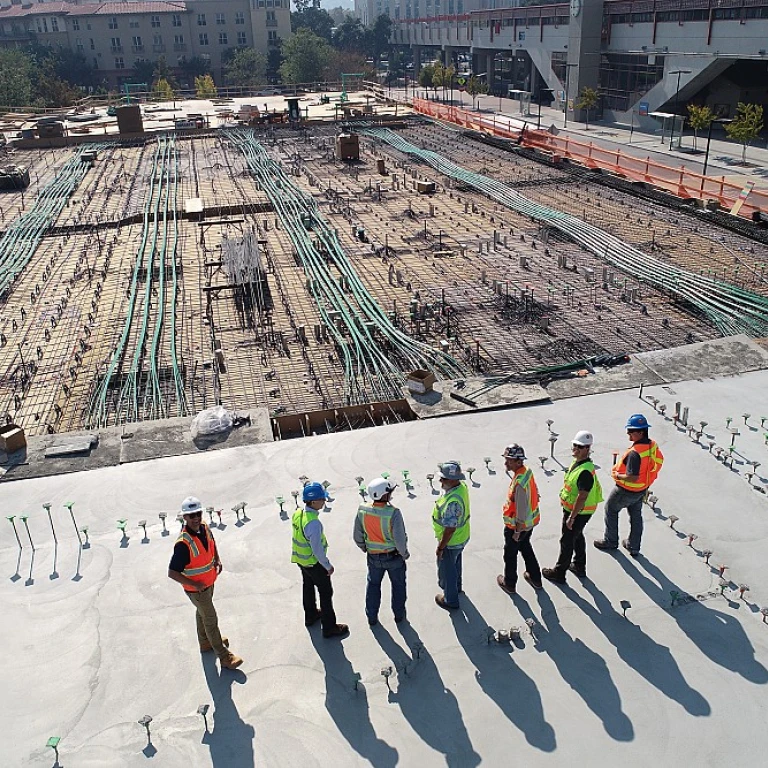Understanding HR Interview Competencies
Grasping the Essentials of HR Interview Competencies
Understanding the key competencies in HR interviews is crucial for anyone looking to excel in this field. When you approach HR interviews, you're not just showcasing your qualifications but also demonstrating a variety of skills and abilities that are vital for success in human resources. In this segment, we delve into what these competencies entail and why they are pivotal.
In HR interviews, the focus often shifts towards matching candidates with a set of defined competencies. These competencies are the skills, behaviors, and attitudes that contribute to high performance in an HR role. It's not just about what you can do, but also how you do it. This understanding sets the foundation for all subsequent discussions about competencies.
Why Competencies Matter
HR interviewers are tasked with identifying candidates who can not only fit into the company culture but also drive it forward. The competencies assessed during interviews are directly linked to core HR functions such as recruitment, employee relations, performance management, and more. Prospective HR professionals need to be eloquent, empathetic, organized, and resilient among other traits.
If you are preparing for an upcoming HR interview, recognizing these competencies will help you align your experiences and skills with the expectations of the role. Harnessing this understanding allows you to tailor your responses and highlight the most relevant experiences.
For a more comprehensive guide, consider reviewing resources available online to help prepare for these interviews effectively. You might find this exploration of
mastering the art of HR interviews to be particularly beneficial as you gear up to showcase your competencies.
Core Competencies for HR Interviews
Central Competencies Examined in HR Interviews
In HR job interviews, you'll often encounter competency-based assessments, specifically designed to evaluate whether candidates possess the crucial skills for a successful HR role. Employers utilize this type of interview to gain insights into your potential to excel in the job environment.
Some central competencies frequently examined in HR interviews include:
- Communication Skills: Proficiency in communication is essential for any HR professional. It involves not only the ability to convey information clearly but also active listening and effective interpersonal skills.
- Problem-Solving Abilities: HR professionals often face complex challenges that require innovative solutions. Your ability to strategically address and resolve these issues is crucial.
- Adaptability: The HR field is dynamic and constantly evolving. Demonstrating flexibility and the ability to handle changes with a calm and open mindset is an asset.
- Teamwork and Collaboration: Working in HR necessitates collaboration across different levels and departments in an organization. Showcase your ability to work well within a team to achieve common goals.
- Decision-Making: You'll need to make fair, logical, and ethical choices that align with company policies and goals. Strong decision-making skills are vital in ensuring outcomes are beneficial for all parties involved.
These competencies are not only fundamental to your role but also demonstrate your potential for growth in a company's HR department. As you prepare for your interview, reflect on your experiences and skills that align with these areas to make a compelling case to your prospective employer.
For more details on honing your responses during HR interviews, check out our guide on
mastering HR interview responses.
Common Competency-Based Interview Questions
Recognizing the Different Types of Questions
Competency-based interview questions are designed to assess your skills and identify how well you align with the core competencies required for the HR role you're applying for. These questions often focus on situations you've encountered in the past and how you've handled them, providing valuable insights into your thought process and behavior.
Examples of Common Competency-Based Questions
When facing an HR interview, it's crucial to anticipate common competency-based questions. Here are some examples you may encounter:
- Problem-Solving: "Describe a challenging situation at work and how you resolved it."
- Teamwork: "Give an example of how you successfully worked within a team."
- Leadership: "Tell me about a time when you led a project or team."
- Communication: "Share an instance where you had to convey difficult information to a colleague or client."
Understanding these types of questions can help you prepare thoughtful responses that showcase your past experiences and how they demonstrate relevant competencies.
Preparing for Competency-Based Questions
To effectively handle these questions, it's important to prepare comprehensively. Drawing on techniques discussed in
mastering HR interview skills for success, you can enhance your responses with the STAR (Situation, Task, Action, Result) method or other structured approaches.
Resources to Boost Your Interview Preparation
Improving your competency-based interview responses requires practice and insight into the HR interview process. To further improve your preparation, visit
getting ready for HR job interviews for more in-depth information and tips on acing your HR interviews. These resources provide additional strategies to convey your competencies effectively, ensuring you stand out as a strong candidate.
Preparing for Competency-Based Interviews
Steps to Shine in Competency-Based Interviews
Competency-based interviews can be daunting, but with the right preparation, you can excel. Here’s how to approach them:
- Research the Job Description
Ensure you identify the competencies the employer is looking for by carefully reviewing the job description. Knowing the required skills and attributes will help you tailor your responses effectively.
- Reflect on Past Experiences
Think about your previous roles and come up with specific instances where you demonstrated the particular competencies. Use the STAR method (Situation, Task, Action, Result) to structure your responses.
- Practice Delivering Your Responses
Familiarize yourself with different scenarios and practice articulating them clearly and concisely. Practicing out loud will build your confidence.
- Understand the Company Culture
Competency-based interviews often assess cultural fit. Research the company’s values and mission to ensure your responses demonstrate alignment with the organization’s ethos.
- Prepare Smart Questions
At the end of the interview, have insightful questions ready to ask the interviewer. This not only shows your genuine interest in the role but also reflects your competency in performing due diligence.
By following these steps, you'll be well-prepared to tackle competency-based interviews with confidence, building on insights from understanding key HR competencies and potential interview questions.
Real-Life Examples and Success Stories
Illustrative Success Stories from HR Interviews
Sharing real-life examples and success stories can be inspiring and offer valuable insights into how different candidates have navigated competency-based HR interviews. By reflecting on these success stories, you can glean practical advice and perhaps even adopt some strategies in your interviews.
One compelling story is about a candidate who aced an HR interview by effectively using the STAR (Situation, Task, Action, Result) method. This method is a powerful tool for structuring responses in competency-based interviews. The candidate recounted managing a challenging project, clearly describing the situation, the tasks undertaken, the actions implemented, and the results achieved. This detailed account helped the interviewer see the candidate's ability to handle complex situations, a critical HR competency.
Another candidate found success by thoroughly researching the company and the specific competencies emphasized in the job description. By preparing specific examples aligning with those competencies, they demonstrated not only their experience but also their genuine interest in the organization. This approach can significantly impact how candidates are perceived during the interview.
Similarly, many candidates have found success by practicing their responses to potential competency-based questions, allowing them to speak confidently and clearly during the actual interview. Practice, often with a friend or a mentor, can simulate the interview environment and help refine your answers.
These stories highlight the importance of preparation, understanding the competencies required, and effectively communicating your experiences. They serve as a reminder that while every interview is unique, certain strategies consistently lead to success. Embrace these examples as you continue to refine your interview skills and prepare to showcase your HR competencies effectively.
The Role of Behavioral Interviewing in HR
The Influence of Behavioral Interviewing Techniques on HR Success
In the realm of HR interviews, behavioral interviewing is a pivotal technique used to identify candidates' competencies more accurately. This method focuses on understanding how candidates have handled various situations in the past, providing unique insights into their capabilities.
Behavioral interviews typically differ from traditional interviews by asking candidates to provide specific examples from their past experiences. This allows interviewers to assess whether candidates possess the necessary competencies for the HR role they are applying for. By focusing on past behavior, interviewers can reasonably predict future performance, which makes this technique incredibly valuable in HR.
Benefits of Behavioral Interviewing in Identifying HR Competencies
- Assesses Real-World Application: Behavioral interviews dive into how candidates operationalize their skills and knowledge in real situations, offering a clear picture of their practical abilities.
- Encourages Detailed Responses: Candidates are encouraged to provide detailed accounts of past experiences, which can highlight essential competencies like problem-solving, communication, and teamwork.
- Promotes Objectivity: This technique helps mitigate biases that can occur in traditional interviews by centering on evidence-based responses.
Strategies for Excelling in Behavioral HR Interviews
Preparation is crucial for performing well in behavioral interviews. Candidates should become familiar with common questions and frameworks such as the STAR method (Situation, Task, Action, Result) to structure their responses. Practicing how to apply this structure can greatly enhance clarity and confidence during the interview.
While preparing, it's essential to reflect on past experiences that demonstrate key competencies relevant to the HR position. Highlight scenarios where you successfully navigated challenges, showcasing skills that are critical for HR success.
Remember, the goal of the behavioral interview is not only to demonstrate your past competencies but also to illustrate your potential for future contributions in an HR role. By leveraging past experiences effectively, and presenting them with a clear, structured approach, you set yourself up for seamless advancement in your HR career.








